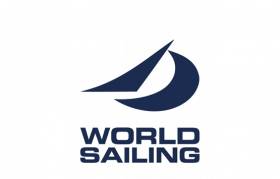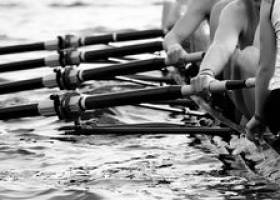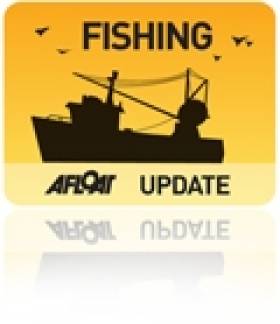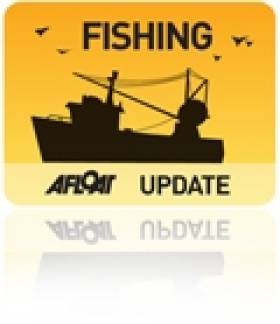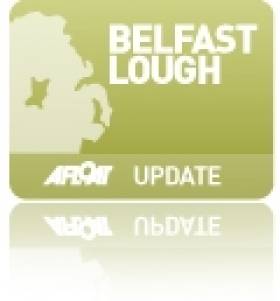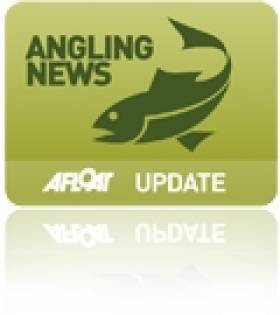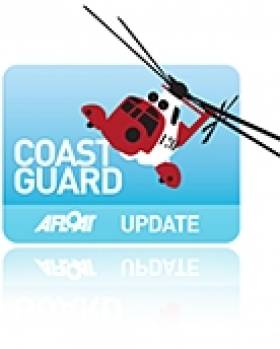Displaying items by tag: Russia
#Rio2016 - World Sailing has provisionally confirmed six Russian sailors for the Olympic Games that kick off next Friday in Rio.
Following a conference call yesterday (Tuesday 26 July) with its board of directors in the wake of the damning McLaren report on doping in sport, the world governing body for sailing confirmed the eligibility of RS:X competitors Stefania Elfutina and Maksim Oberemko, 470 sailors Liudmila Dmitrieva, Alisa Kirilyuk and Denis Gribanov, and Laser helm Sergey Komissarov.
All six are currently in Rio preparing for the games.
Gribranov's sailing partner Pavel Sozykin was denied eligibility based on the findings of the McLaren report, but World Sailing has recommended that the Russian Olympic Committee will have the opportunity to nominate a last-minute replacement.
These provisional confirmations are subject to approval by the Court of Arbitration for Sport (CAS).
"The World Sailing board of cirectors carefully considered all relevant factors in making these determinations, including the guidance provided by the IOC, the results of the McLaren Investigation Report and our own rules and procedures," said Andy Hunt, World Sailing CEO.
"This is unprecedented territory for international sport as, collectively, we work to protect the integrity of sport and remain resolute in our commitment to eliminate doping. These efforts must be balanced with principles of fairness, due process and adherence to established rules.
"There is, however, no room in sailing for athletes who seek to gain an unfair advantage through the use of banned substances or who attempt to manipulate or subvert the anti-doping system. For World Sailing, there is no greater priority than protecting and preserving clean competition.”
The news comes after all but six Russian rowers were barred from the Rio games over the McLaren findings, as previously reported on Afloat.ie.
Fisa Bans All But Six Russian Rowers From Olympics
#Rowing: Only six Russia competitors have been cleared by Fisa, the governing body of rowing, to compete at the Olympic Games. Twenty were ruled ineligible as records were scrutinised in line with the International Olympic Committee’s guidelines on drug testing. One Irish crew, the lightweight women’s double, is affected. The Russia crew of Alena Statagina and Anastasiia Ianina will not be allowed participate, and their place will be offered to Italy.
The full Fisa statement reads:
The FISA Executive Committee has made a final decision related to Russian participation for rowing in Rio 2016 in accordance with the IOC Executive Board’s decision, point 2.3.
IOC Decision, point 2.3 – “IFs should carry out an individual analysis of each athlete’s anti-doping record, taking into account only reliable adequate international tests and the specificities of the athlete’s sport and its rules, in order to ensure a level playing field”
Russia has qualified five boats and entered 26 rowers and two coxswains for the Olympic Games in Rio de Janeiro. The athletes’ names were entered by the Russian Olympic Committee (ROC) by the deadline of 18 July 2016. Testing information collected from FISA, WADA, the Russian Rowing Federation (RRF), RUSADA and UK Anti-Doping shows that a total of 1679 blood and/or urine tests were carried out between 2011 and June 2016 on all Russian rowers. For the Russian rowers entered for Rio, 547 blood and urine tests were conducted since 2011. None of the 28 athletes entered on 18 July have tested positive in the last five years.All of these tests are fully documented in the WADA online documentation tool called ADAMS.
However, WADA’s Independent Person (IP) report reveals that the Moscow Laboratory was under the control of the Deputy Minister of Sport and was using the Disappearing Positive Methodology scheme to manipulate test results. It also states that the IP has “only skimmed the surface of the extensive data available.” Therefore, the FISA Executive Committee reviewed each entered Russian rower in order to assess the adequacy and reliability of their “international” testing (the analysis of the samples performed at a WADA accredited lab other than Moscow), taking into account the specificities of the sport of Rowing.
IOC Decision, point 4. “The IOC will accept an entry by the ROC only if the athlete’s IF is satisfied that the evidence provided meets conditions 2 and 3 above, and if it is upheld by an expert from the CAS list of arbitrators appointed by an ICAS Member”
The FISA Executive Committee, due to the manipulation of the Moscow Laboratory tests, has determined, based on the assessment of independent testing of all rowers, the following will be permitted to enter:
CHAUKIN, Aleksandr
EFREMENKO, Georgy
KOSOV, Artem
MORGACHEV, Nikita
RYABCEV, Vladislav
ZARUTSKIY, Anton
The remaining 17 entered rowers and two coxswains (besides the three rowers revealed yesterday) are not at all considered to have participated in doping, but do not meet the conditions established by the IOC in their decision of 24 July 2016 for participation in the Rio 2016 Olympic Games.
Effect of this decision
The effect of this decision is that Russia has six remaining eligible rowers - one lightweight and five open weight men - for competition in Rio 2016.
Therefore, four Russian boats (LM4-, LW2x, M8+ and W8+) will be withdrawn from participation in the Games and will be attributed to the next placing crews at the 2016 Final Olympic Qualification Regatta in Lucerne, Switzerland, as follows:
LM4- to Greece, the Hellenic Rowing Federation
M8+ to the Italian Rowing Federation
W8+ to the Australian Rowing Federation
And in the 2016 European Continental Qualification Regatta in Lucerne, Switzerland:
LW2x to the Italian Rowing Federation
Russia has the possibility to form a men’s four (M4-) with the eligible six rowers for competition in Rio 2016. We await the Russian Rowing Federation’s decision on this possibility.
Any issues with the Russian participation at the Paralympic Games will be dealt with at a later date.
Coveney Secures EU Measures Against Russian Ban on Fisheries Imports
#fishing – Minister Simon Coveney TD, at today's EU Fisheries Council, secured the agreement of the Council and the Commission to bank a portion of this year's fishing quotas and transfer them into 2015. This measure will give the fishing industry the option of not fishing part of this year's quota and having it available in 2015. This measure will help mitigate the impact of the Russian ban on the importation of fishery products. The banking option will be applied to the mackerel, horse mackerel and Celtic Sea herring stocks as these are directly impacted by the Russian imports ban. The measure will be introduced shortly on the basis of positive scientific advice that it will not adversely impact on the sustainability of the stocks.
Minister Coveney said "I have listened to our industry and the difficulties those fishing Celtic Sea herring, mackerel and horse mackerel are experiencing because Russia has closed its important market to EU fishery products. The price for herring has dropped significantly for this autumn fishery and I want to give the industry the option of banking part of the quota until prices improve. I today secured the agreement of the Fisheries Council and the Commission to bank 25% of this year's quota until prices improve next year when market conditions have improved. I expect the Commission to receive the required scientific advice that the stocks will not be adversely impacted by this measure over the coming week so that the measures may be adopted in early November. "
Minister Coveney added "I made clear at Council today that we must recognise that we are dealing with a difficult situation for our fishing industry arising from a geo-political issue. We fully support the sanctions decision taken by the EU but must now provide as much support as possible to our fishing industry. The agreement I secured today at Council will give the industry some time and flexibility to find alternative markets while preserving Ireland's quota allocation."
Coveney Calls For Emergency Fund To Help Sanction-Hit Mackerel Fishermen
#Fishing - Marine Minister Simon Coveney wants an emergency fund to assist Irish mackerel fishermen who have been hit by Russia's ban on EU imports in the wake of the Ukraine crisis.
As RTÉ News reports, Minister Coveney made the call at an emergency meeting of Europe's farming and fisheries ministers in Brussels yesterday (Friday 5 September), arguing that support provided to farmers should extend to the fishing sector.
Russia accounts for 25% of all mackerel exports from Ireland, and the minister added that Russia's EU seafood ban "means this is a big fisheries issue as well as an agri-food issue."
A €200 million fund has already been put in place to cover storage of goods that would have otherwise gone to Russia, and to redirect exports to new markets.
RTÉ News has more on the story HERE.
#BelfastLough - The Belfast Telegraph reports that a Russian sailor found drunk in charge of a ship in Belfast Lough has been given a 12-month conditional discharge by Belfast Magistrates Court - and will now be sacked from his post and sent back to Russia.
The court heard that engineer Mikhail Irusglotov, 53, was found intoxicated on board the Fluvis Taw last Friday 28 March by the ship's captain, who believed he was too drunk to work if required despite being off duty at the time.
After being brought to court on Saturday and released on bail till yesterday's hearing, he was arrested again later that day after failing a second sobriety test.
The Belfast Telegraph has more on the story HERE.
#Adventure - An Irish duo have returned home after crossing the world's largest frozen lake in Russia.
As RTÉ News reports, Mike O'Shea from Dingle and Clare O'Leary from Bandon traversed the 640km-long Lake Baikal in Siberia over 26 days, contending with temperatures 30 degrees below freezing.
The challenge was the second mission in the veteran adventurer pair's 'Ice Project', an attempt to cross the world's main ice caps before the end of 2016.
Their next adventure will be a crossing of either Iceland or Greenland - where another intrepid group of Irish adventurers are headed this summer, as previously reported on Afloat.ie.
Meanwhile, rower Paul Gleeson writes in The Irish Times about his own upcoming challenge, joining three other men in a 25ft rowing boat to travel the 2,000 miles of the Northwest Passage in the Canadian Arctic.
Limerick man Gleeson, who is now based in Canada, compares the trek to the infamous Franklin Expedition through the passage in the mid 1800s - a tragic mission with an Irish connection through its second-in-command Francis Crozier.
The Irish Times has much more on the story HERE.
Atlantic Salmon Trust Launches 2012 Auction Online
#ANGLING - The Atlantic Salmon Trust's 2012 Fishing Country Sports Auction went live this week, with some 300 lots offered - including three prime Irish fishing spots on the Blackwater, Mourne and Drowes.
“The annual auction remains our single most significant fundraising event and its success is essential to helping us continue our work,” said AST chief executive Tony Andrews in The Irish Times.
Aside from top fishing opportunities in England, Scotland and Wales, spots in Russia are also featured, as well as deer stalking excursions and shooting days.
For art lovers, sporting prints and watercolours are included in the lots, as is a limited edition of the acclaimed Atlantic Salmon Magic, and Salmon Rivers, one of the best recent publications on the Atlantic salmon. They could be the perfect gift for someone's Valentine's Day.
Bids will close on 14 February for the online auction at www.atlanticsalmontrust.org/auction/.
Russian Ambassador Proposes Reward for Swanland Rescuers
#COASTGUARD - Russia's ambassador to Britain has proposed rewarding rescuers involved in the search for missing seamen in the Irish Sea last week following the sinking of the cargo ship Swanland.
As previously reported on Afloat.ie, the cargo vessel - carrying 3,000 tonnes of limestone - went down some 10 miles west of the Lleyn peninsula in north Wales in the early hours of last Sunday.
Two of the eight crew, who were all Russian, were recovered from the sea. A third was found deceased, while the remaining five are still missing.
As many as 11 coastguard rescue teams were involved in the search operation, which also saw an RAF rescue helicopter - piloted by Prince William - lend assistance.
At a meeting with the two rescued sailors in London last Wednesday, Ambassador Alexander Yakovenko commented: “What if we propose [the rescuers] to be rewarded by the Russian side?”
Russian news agency RIA Novosti has more on the story HERE.
To Russia with ‘Potatoes’
Asides the cash crop, Drogheda Port has established shipping trades routes in the carriage of containers units, fertilizers, magnesite, LPG and newsprint. In addition the Co. Louth port operates the country's only weekly service to Norway, Sweden and Denmark.


























